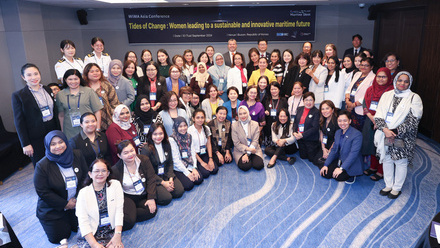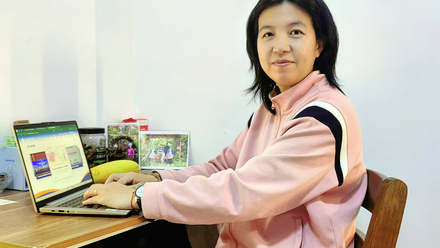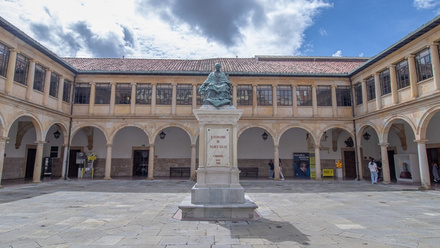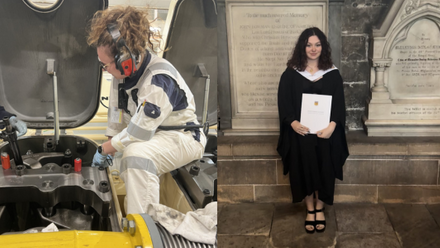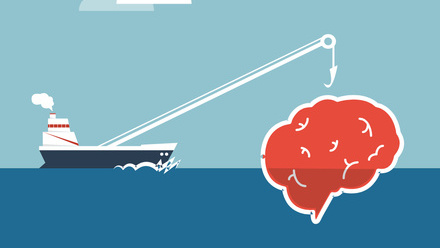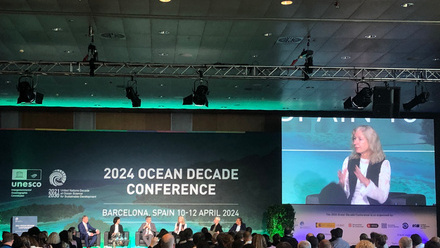Gender bias: Why diversity matters
The new IMarEST Women’s SIG is setting out to address the gender bias in the marine sector.
Dr Bev MacKenzie, Policy Director at the IMarEST, has significant experience in her field and has been with the IMarEST for 16 years.
Recently – and not for the first time – she has been one of a very small number of women on conference panels, in meetings and at events.
It is experiences like this which spurred her on to ask the past-President of the IMarEST to prioritise gender diversity during his tenure, and to put his support behind the IMarEST Women’s SIG.
“Do we need one?”
Yet “why do we need one?” is a question she has been asked more than once.
“There is a real need to make marine sector more women-friendly – and one thing to emphasise is that it’s not just something which is nice to do or just done because it's ‘the right thing’. There is a business case for it – for the Institute and for the professions we work with. It affects employee retention, and there is a wealth of evidence that having a diverse workforce, right up to board level, results in better decision making.”
As the global 30% club says, those organisations that foster truly inclusive cultures… “that embrace women who look, act and, importantly, think differently, can reach their full potential to positively impact their people, their markets and their communities.”
Marine, science, and engineering are sectors with a bigger gender bias than most. As Lloyd’s List highlighted in its December 2019 Top 100 of shipping industry influencers, for example, “the gender bias… in the industry is still a deeply problematic issue yet to be resolved.”
That’s the clear problem – so how does the Women’s SIG plan to tackle it?
The problem isn’t going to be solved overnight but setting up a Women’s SIG is an exciting first step. Dr Bev MacKenzie and the rest of the team are just getting started, looking at ways to get members engaged and to partner with organisations which have expertise in this area, or which have recognised the challenge and want to work to address it.
Starting with the IMarEST
“The first step is to look at the IMarEST as an organisation, and make sure we have the policies and people in place that reflect a modern, professional body with a diverse membership, one that welcomes different points of view,” explained Dr Bev MacKenzie.
We need to look at the cultural challenges we might have to face and what can we learn from other sectors. Gender diversity is about so many things; pay, conditions, harassment, work life balance, right through to basic education for girls that will allow them to achieve their potential.
Longer term, we need to understand what the future will bring. For example, if more jobs move on shore due to higher levels of autonomy in shipping, we need to consider and have a view on what that will mean. It’s often assumed that this will open up the marine world to women who want to work in the sector but not go to sea, but this assumes women are developing the right skills in computing for example. This simply might not be the case.
What the SIG also wants to recognise is that there are tremendous success stories of women making waves in their chosen fields, whether they are navy cadets, scientists, or engineers.
Denise Swanborn has joined the women’s network and is in her third year of her PhD research at the University of Oxford. She received the Stanley Gray Fellowship for her research and sees her future in marine renewable energy.
“Being an IMarEST member has supported me tremendously, as well as offering opportunities to connect and exchange ideas with scientists, engineers, and professionals with a passion for the ocean,” she said.
“I am part of the Nekton Foundation, a UK-based organisation working in scientific ocean exploration and protection with activities in the Indian Ocean.
“My research focuses on the relationship between seabed structure and ecosystems important for conservation at depths beyond 30m. I work with different seabed mapping techniques to produce maps representing 3D seabed structure, and use these to understand the drivers and distribution of species and habitats. Such knowledge can help sustainable management of marine resources.
What fascinates me about this field is that despite the importance of the deep ocean for planetary health and resources, the majority of the seabed and associated ecosystems remain unmapped and unexplored, particularly in the Southern Hemisphere. Through my PhD research I can contribute to filling in some of these knowledge gaps.”
Encouraging more women to pursue a long-term career – like Denise – in the marine sector would be a positive outcome for all.
Everyone is welcome to support and join the Women’s SIG.

